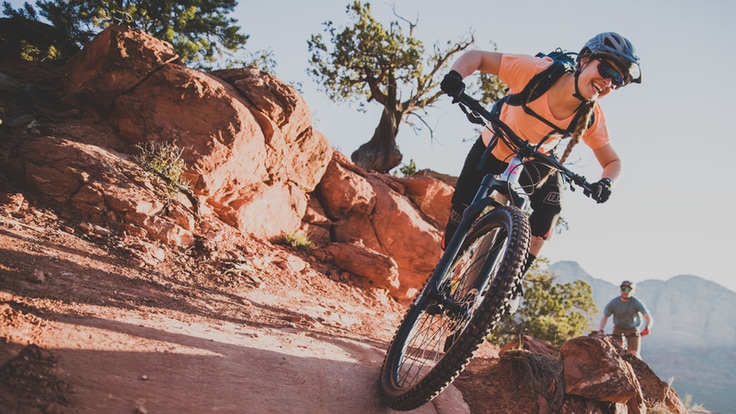Fasting while hiking can impact energy levels and performance. Proper preparation and hydration are essential.
When taking on a challenging hike, it’s important to consider how fasting may affect your abilities on the trail. Maintaining optimal energy levels is crucial for a successful hike, and fasting can alter your body’s fueling needs. By understanding the potential impacts of fasting while hiking, you can make informed decisions to ensure a safe and enjoyable outdoor experience.
This article will explore the benefits and challenges of fasting during hikes and provide practical tips to help you navigate fasting while on the trail.


Credit: www.amazon.com
Benefits Of Fasting While Hiking
Fasting while hiking can offer a multitude of benefits that go beyond just physical exercise. Not only does it challenge your body to perform in a fasted state, but it also taps into the body’s natural ability to adapt and optimize energy usage.
Increased Energy Levels
Fasting during hiking can boost energy levels by promoting the efficient use of stored energy sources such as fat. This can result in sustained energy levels throughout the hike.
Enhanced Fat Burning
Hiking while fasting can enhance the body’s ability to burn fat for fuel, leading to increased fat oxidation and potential weight loss benefits.
Best Practices For Fasting And Hiking
Fasting and hiking can offer numerous health benefits. To maximize performance and safety on the trails, it’s crucial to follow best practices for fasting and hiking.
Hydration And Electrolyte Balance
Staying hydrated is essential while fasting and hiking. Remember to carry a reusable water bottle or hydration pack to drink water frequently.
Strategic Meal Timing
Eat a balanced meal before starting the hike to provide sustained energy. Afterwards, gradually break your fast with nutrient-dense foods.
Preparing For A Fasted Hike
Gradual Adaptation To Fasting
Gradually adapting your body to fasting is crucial before embarking on a fasted hike. By slowly increasing the duration of your fasts over several weeks, your body can adjust to utilizing stored fat for energy more efficiently.
Optimizing Nutrient Intake
Ensuring you receive adequate nutrient intake before a fasted hike is essential for sustaining energy levels. Focus on consuming a balanced diet of whole foods, including lean proteins, healthy fats, and complex carbohydrates, to optimize your body’s nutrient reserves.
Fasting And Hiking: A Personal Journey
Embarking on a hiking trip can be an invigorating experience, allowing you to get closer to nature and challenge yourself physically. Many hikers opt to fast during their treks, either for personal reasons or as part of their health and wellness routine. In this blog post, we explore the personal journeys of individuals who have combined fasting with hiking, as well as share some valuable tips from nutrition experts. Whether you are a seasoned hiker or someone considering fasting while hiking for the first time, this article will provide you with insights and guidance to make the most of your experience on the trail.
Experiences From Seasoned Hikers
Seasoned hikers who have incorporated fasting into their hiking routine have reported a range of positive experiences. One common theme is increased mental clarity and focus. By abstaining from food while hiking, hikers believe they can tap into a deeper level of concentration, allowing them to fully appreciate their surroundings and navigate the trail with precision. Additionally, fasting can push hikers to explore their own physical limits and challenge their endurance levels.
One hiker, John, shared his experience of fasting while tackling a challenging mountain trail. He described feeling a heightened sense of adventure and spiritual connection as he pushed through the hunger pangs. John believes that fasting while hiking not only enhances the physical experience but also creates a deeper connection with nature and oneself.
Tips From Nutrition Experts
While fasting during a hike can offer unique benefits, it is important to approach it with caution and prioritize safety. Consulting with a nutrition expert before attempting any fasting regimen is highly recommended. Here are some tips from nutrition experts to ensure a smooth fasting and hiking experience:
- Stay Hydrated: During fasting, it is crucial to drink enough water to stay hydrated. Carry a reusable water bottle and regularlly sip throughout the hike.
- Know Your Limits: Listen to your body and take breaks as needed. Pay attention to any signs of fatigue or dizziness, and adjust your pace accordingly.
- Pack Nutrient-Dense Snacks: Although you may be fasting, it is necessary to have a few nutrient-dense snacks on hand in case of emergencies. Include items such as nuts, dried fruits, and energy bars.
- Plan for Break Fast: Once you break your fast after the hike, focus on consuming a balanced meal that provides the necessary nutrients to replenish your body’s energy levels.
By following these expert tips, you can ensure that fasting while hiking becomes a safe and rewarding experience. Remember, it is always advisable to consult with a healthcare professional or nutritionist before making any major changes to your diet or fasting routine.
Safety Measures And Considerations
The safety measures and considerations when fasting while hiking are of utmost importance to ensure a successful and safe experience. Fasting can provide a range of benefits, but it’s essential to be aware of your physical limits and recognize signs of fatigue to avoid any potential risks. In this section, we will explore these safety measures in detail, including monitoring your physical limits and recognizing signs of fatigue.
Monitoring Physical Limits
Monitoring your physical limits while fasting and hiking is crucial to prevent overexertion and potential injuries. It’s important to listen to your body and be aware of any warning signs or discomfort. Physical limits can vary from person to person, so it is essential to know your own body’s capabilities and not push yourself beyond them. Here are a few guidelines to help you monitor your physical limits:
- Start slow: When beginning a fasted hike, start with shorter durations and gradually increase the distance and intensity over time. This allows your body to adapt and adjust to the fasting state.
- Stay hydrated: Even though you are fasting, it is essential to stay hydrated by drinking enough water throughout your hike. Dehydration can lead to fatigue and other complications, so make sure to carry an adequate water supply.
- Track your heart rate: Monitoring your heart rate can give you a good indication of your exertion level. If your heart rate is consistently high or you experience any irregularities, it may be a sign that you are pushing yourself too hard.
Recognizing Signs Of Fatigue
Recognizing signs of fatigue is crucial to prevent exhaustion and potential health risks when fasting while hiking. Fasting can reduce your energy levels, so it’s important to identify when your body needs rest and recuperation. Here are some signs of fatigue to watch out for:
- Excessive sweating
- Feeling dizzy or lightheaded
- Muscle weakness or cramps
- Difficulty concentrating or making decisions
- Increased irritability or mood swings
If you experience any of these signs, it’s essential to take a break and replenish your energy levels. Find a shady spot, rest, and have a small snack to regain strength. Pushing through fatigue can lead to accidents and injuries, so it’s crucial to prioritize your well-being.

Credit: www.amazon.com

Credit: www.rei.com
Frequently Asked Questions For Fasting While Hiking
Can I Fast While Hiking?
Yes, you can safely fast while hiking. However, it is important to plan your meals strategically before and after the hike to ensure you have enough energy and nutrients. Consult with a nutritionist or doctor for personalized guidance.
What Are The Benefits Of Fasting While Hiking?
Fasting while hiking can enhance fat burning, improve mental clarity, and increase insulin sensitivity. It can also promote weight loss, boost your metabolism, and help in detoxification. However, it’s crucial to listen to your body and make sure you are properly hydrated throughout the hike.
How Should I Prepare For A Hike While Fasting?
When fasting while hiking, make sure to stay hydrated and bring water with electrolytes to replenish lost minerals. Start your hike well-rested and consider incorporating lighter exercises to warm up. It’s essential to listen to your body and break your fast if you feel dizzy or weak during the hike.
Conclusion
Fasting while hiking can provide various benefits, including increased fat burning and improved mental clarity. However, it’s essential to listen to your body’s signals and break the fast if necessary. Remember to stay hydrated and be mindful of energy levels during fasting hikes.
Ultimately, finding the right balance is key.
